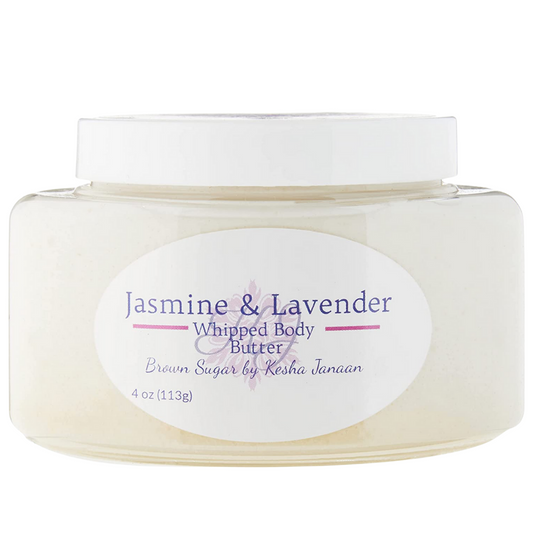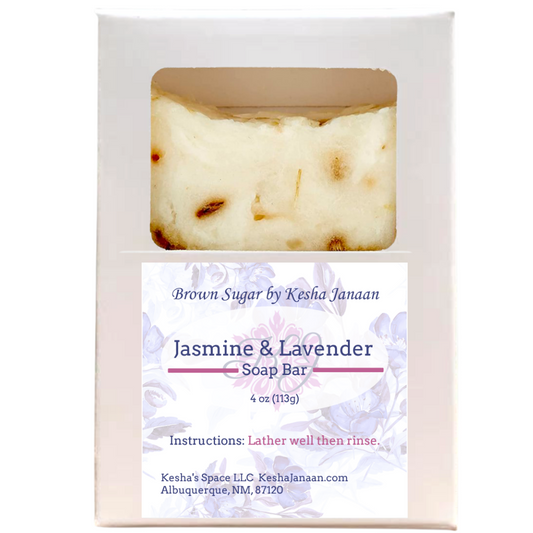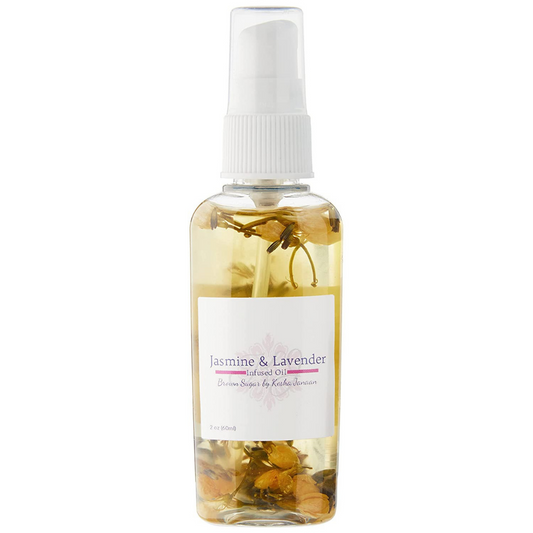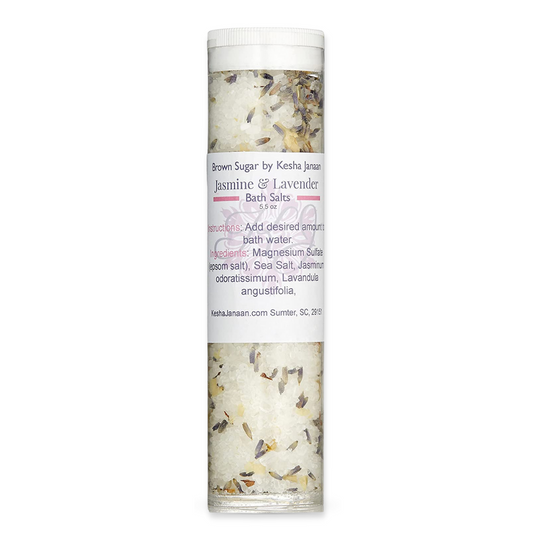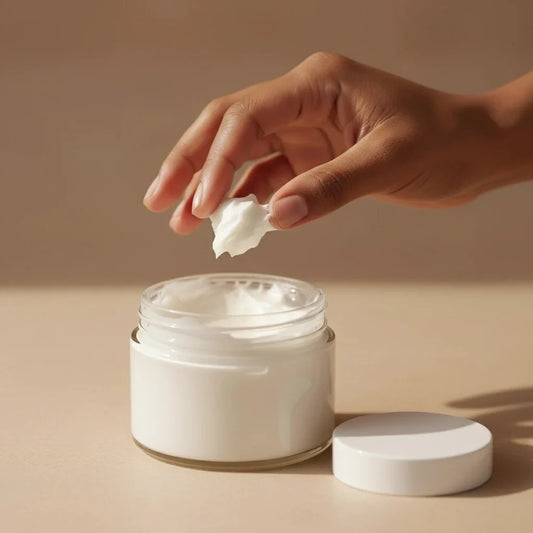If you have sensitive skin, you've probably spent countless hours reading ingredient lists, hoping to find products that won't leave you dealing with redness, irritation, or breakouts. With so many buzzwords floating around the beauty world: natural, organic, clean, fair trade: it can feel overwhelming to know what actually matters for your skin's health.
Today, we're diving deep into one question that many conscious consumers are asking: Are fair trade ingredients better for sensitive skin than regular ones? The answer might surprise you, and it's more nuanced than you'd think.
Understanding Fair Trade Ingredients
Fair trade ingredients go beyond just what's inside the jar: they represent a commitment to ethical sourcing, sustainable farming practices, and fair wages for the communities that grow and harvest these botanical treasures. When you see "fair trade" on a skincare product, it means the ingredients were sourced through partnerships that prioritize both people and planet.
But here's what really matters for your sensitive skin: fair trade sourcing often means ingredients are harvested using traditional methods that preserve their natural potency and gentleness. Take andiroba oil, for instance. When sourced from Brazilian riverbank communities through fair trade partnerships, this oil retains its rich limonoid content, making it incredibly effective at reducing inflammation: exactly what eczema-prone or sensitive skin needs.

The Sensitive Skin Advantage of Fair Trade Sourcing
For sensitive skin, the way ingredients are processed can make all the difference. Fair trade sourcing typically emphasizes minimal processing and traditional harvesting methods, which often results in gentler, more skin-friendly ingredients.
Consider tamanu oil sourced from fair trade cooperatives. This golden oil naturally offers antimicrobial and wound-healing properties that are perfect for sensitive, acne-prone skin. Because it's harvested using time-tested traditional methods rather than industrial processing, the oil maintains its therapeutic qualities without the harsh additives that might irritate delicate skin.
Babassu oil is another excellent example. When harvested by Brazilian women coconut breakers through cooperative programs, this light, non-comedogenic oil retains all its natural benefits. It's perfect for sensitive skin that's prone to clogged pores, offering moisture without heaviness or irritation.
The community-focused approach of fair trade also means these ingredients often come with generations of traditional knowledge about their skin-soothing properties. This isn't just marketing: it's wisdom passed down through communities who have been using these botanicals for centuries.
Regular Ingredients: Not Always the Enemy
Now, before we crown fair trade as the automatic winner, let's talk about regular ingredients. The truth is, many conventional ingredients: whether natural or synthetic: can be incredibly gentle and effective for sensitive skin.
Synthetic ingredients, in particular, are often designed with specific skin concerns in mind. They undergo rigorous testing for safety and efficacy, and because they're created in controlled environments, they offer consistency that can be crucial for sensitive skin that reacts poorly to variations in product formulation.

Here's something that might shock you: a 2023 study examining nearly 1,700 products labeled as "natural," "clean," or "sensitive skin-friendly" found that more than 94% contained ingredients linked to skin irritation. This research reminds us that natural doesn't automatically equal gentle, and fair trade doesn't guarantee your skin will love every ingredient.
The Quality Control Factor
One significant difference between fair trade and regular ingredients lies in quality control approaches. Fair trade ingredients often emphasize traditional methods and seasonal harvesting, which can lead to natural variations in potency and composition. While this can mean more authentic, unprocessed ingredients, it might also result in less predictable effects for very sensitive skin.
Regular ingredients, on the other hand, typically go through standardized processing that ensures consistency from batch to batch. For someone with extremely reactive skin, this predictability can be invaluable.
Making the Right Choice for Your Skin
So, which is better for sensitive skin? The answer depends on your individual needs, values, and skin sensitivities. Here's how to think through your decision:
Choose fair trade ingredients if:
- You want to support sustainable and ethical sourcing practices
- Your skin responds well to minimally processed, traditional botanicals
- You're looking for ingredients with anti-inflammatory properties like andiroba or tamanu oil
- You're willing to invest in slightly higher-priced products for ethical sourcing
Consider regular ingredients if:
- You need highly predictable, consistent formulations
- You're working with a limited budget
- Your skin is extremely reactive and benefits from well-tested synthetic ingredients
- You prioritize availability and consistent supply

Reading Beyond the Labels
Regardless of whether you choose fair trade or regular ingredients, the most important skill you can develop is reading and understanding ingredient lists. Don't rely solely on front-of-package claims like "natural" or "for sensitive skin."
Instead, look for specific ingredients known to benefit sensitive skin. In fair trade products, seek out andiroba oil for eczema-prone skin, ximenia oil for improving skin barrier function, or purple corn extract for its powerful antioxidant properties.
For any product: fair trade or not: avoid common irritants like synthetic fragrances, certain essential oils (especially citrus oils), and harsh preservatives if your skin is particularly reactive.
The Environmental and Ethical Dimension
While our primary focus is on what's best for your sensitive skin, it's worth considering the broader impact of your choices. Fair trade ingredients support sustainable farming practices and provide fair wages to farming communities. This ethical dimension doesn't directly affect your skin, but it can add value to your skincare routine if supporting these practices aligns with your personal values.
Many people find that using products aligned with their values creates a more satisfying self-care experience, which can contribute to overall well-being: and we know that stress and emotions can significantly impact sensitive skin.
Practical Tips for Testing New Ingredients
Whether you're trying fair trade or regular ingredients, always patch test new products. Apply a small amount to your inner forearm or behind your ear and wait 24-48 hours to see if any reaction occurs.
Start slowly with new products, introducing one at a time so you can identify which ingredients work best for your skin. Keep a simple skincare journal noting how your skin responds to different products and ingredients.

The Bottom Line
The choice between fair trade and regular ingredients for sensitive skin isn't about one being universally better than the other. Fair trade ingredients often offer the benefits of traditional processing methods and minimal chemical intervention, which can be gentler for sensitive skin. They also support ethical practices that many consumers value.
However, regular ingredients can be equally effective for sensitive skin when chosen carefully and formulated properly. The key is understanding your skin's specific needs and reading ingredients lists rather than relying on marketing claims.
For those with sensitive skin who also care about ethical sourcing and sustainability, fair trade ingredients offer a compelling option that aligns skin health with personal values. The slightly higher cost often reflects not just the ethical sourcing practices, but also the careful, traditional methods used to preserve the ingredients' natural benefits.
Remember, the best ingredient for your sensitive skin is the one that works for you individually, regardless of how it's sourced. Focus on finding products that make your skin feel comfortable, healthy, and happy: whether they carry a fair trade certification or not.
Your sensitive skin deserves products that are both effective and aligned with your values, and with careful research and testing, you can find ingredients that meet both criteria beautifully.

